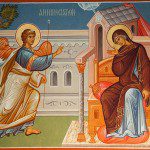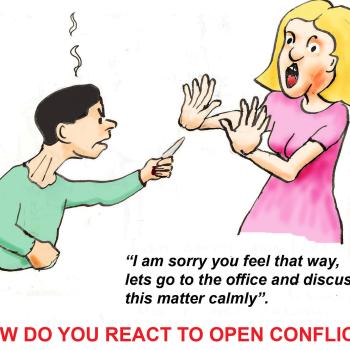
Extremism is a popular topic these days. For the “Right,” it’s of the Islamic variety; for the “Left,” it’s of the white nationalist sort. Both rely on the abstraction of a small number of particularly violent or offensive actors in order to extract a kernel of truth from the historical opponent of choice. Anjem Choudary becomes the unmoored, secret essence of Islam; Richard Spenser betrays the perverse, unconscious desires of white America.
There is, of course, some truth in any such abstraction. In some basic sense, Choudhary elevates and enervates specific elements of Islamic doctrine, enlarging them until they are the substantive basis of a religion. Spenser plays upon fears present among white Americans: feelings of forgotten-ness, nostalgia, and wounded pride; in turn, he proposes a series of answers to these questions, tries to convince other white Americans that his views represent their authentic nature within global history.
Because these two take pieces of their respective faiths (one religious, the other racial) and inflate them, subsuming all other possible interpretations into their own, overturning competing traditions, we call them extremists.
A problem arises, however: namely, who among us can deny the charge of being extreme? Two examples:
First, I think of Martin Luther (I was reading about him recently). Take your pick of how he ended up feeling so darn sinful in spite of objective signs of forgiveness (the Sacrament of Reconciliation, inter alia)—his father, his hemorrhoids, whatever. Regardless of our emphasis, we can see that his early reformist tendencies transformed into outright disgust with the Catholic Church as such because of his specific historical moment. His early contention that faith is a gift is hardly remarkable (and, for the record, this was his original contention. By today’s standards it’s so accepted as to have warranted mutual agreement between Catholics and Lutherans). What made his declaration “radical” was the existing corruption of the Church—indulgences were being sold and pilgrimage had been turned into an industry—one didn’t have to be an extremist to note such glaring abuses (protesting them was a commonplace of late medieval literature). The state and inertia of the Church combined with Luther’s seemingly unchanging dourness moved him from simple reformer to anti-papist Reformer. His own overreaction to his historical situation (the extreme corruption present in the sale of indulgences and other concrete religious phenomena) made him an extremist.
Second, I think of myself. It’s no secret that the process of digitization interests, really frightens, me (examples here and here). At an earlier point in my life, this made me an extremist, nearly a Luddite. I was so scared of the effects of our rapid digitization—faced with transhumanism and the general techno-optimism of our times—that I often sounded positively crazy, sometimes verging on denying the goods afforded us by medical science. I have since (to some extent) repented, but the point is simple enough: the specifics of my life and times led me to overreact.
In this each of us is guilty. Every time you profess that the “Right” is a creature of pure homophobia, xenophobia, etc. you engage in this process of quasi-justified (but extreme!) abstraction, mediated by the particularly virulent strain of Right-politics present in our times (but can we ignore certain questions posed by such ideologies: do we need borders? What of personal responsibility in ethics?). By the same token, every time the government is demonized as the unfolding form of an encroaching nanny state, extremism is committed. It is true that government has caused violations of religious liberty, true that there are valid critiques of the nation state, but none of that requires a faith in 18th-century restrictions on governmental power. Again, overreaction wins the day—historical contingency disguises itself as unbiased reasoning.
The response is, as often for the Christian, as powerfully simple as it is seemingly impossible: humility. Consciousness of our own historicity is the key to proper reasoning; if we may posit it, objectivity is only possible from the position of consciousness of one’s own biases, themselves created by historical vicissitude. The easy answer is always to react violently against the age, to repudiate all similarities with the repugnant indulgences of one’s own times, but the hard truth is that such behavior rarely is well remembered—and even more often untrue. One need only think about the legacies of Mao and America after Vietnam to see how quick is the move from addressing valid concerns to corruption and unimpeded violence.













